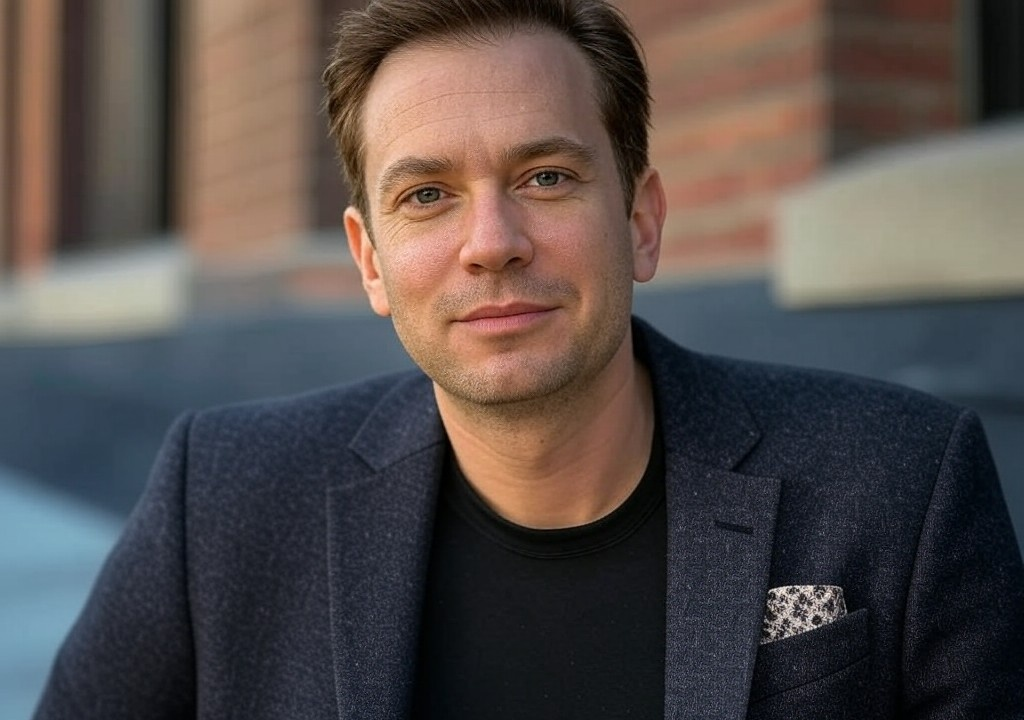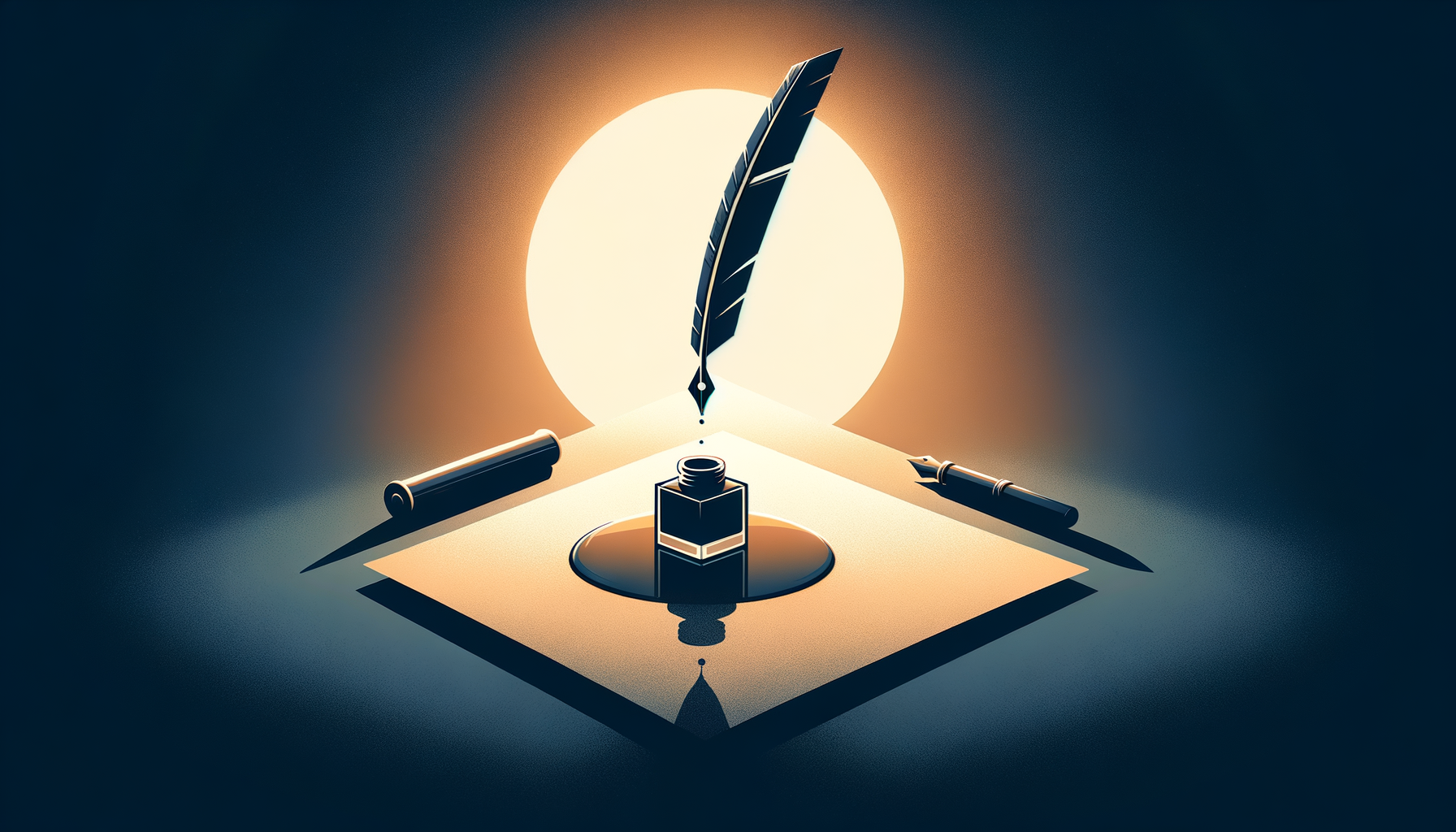Why I Write (and Keep Writing)
The Start of a Love Affair (With Words, That Is)
Picture this: It’s a humid summer afternoon in Brooklyn Heights, and I’m 12 years old, hunched over a well-worn copy of James Baldwin’s Go Tell It on the Mountain. The neighborhood kids are playing stickball on the block, shouting and laughing, but I’m far away—immersed in a world of Baldwin’s making. I’m trying to figure out how he can take something so raw, so personal, and string it together in sentences that feel like they could split you right open.
That was the moment I realized what writing could be: a kind of magic, a subtle alchemy of the mundane transformed into something extraordinary. Sure, part of me still wanted to join the stickball game, but the pull toward storytelling was stronger. It felt like I’d discovered a portal to every emotion and idea I’d ever want to explore—and believe me, a pre-teen attempting to be “deep” has plenty of those.
Years later, that sense of mystery and awe hasn’t faded. In fact, it’s only grown. Writing is the one relationship I’ve been in that never ghosts me, never gets weird when I suggest splitting dessert, and always picks up the check in the form of small, transcendent moments. It’s not perfect—writing can absolutely leave you crying at your desk—but it keeps me coming back for more.
Dialogue: The Heartbeat of Life
For me, writing is like a great first date over drinks—one I never want to end. It’s about that perfect balance: half genuine curiosity, half casual banter. Early in my writing life (back when I thought semicolons would make me sound smarter), I stumbled upon this realization: dialogue—be it spoken or implied—is everything. It’s what pulls people in.
Think about it. Whether you’re texting someone you’re mildly obsessed with or writing the next Pulitzer winner, getting the tone right is crucial. You’re trying to sound interesting, witty but not arrogant, emotionally available but not clingy. It’s an art. Writing and relationships are both rooted in the push and pull of conversation.
Baldwin had dialogue. Toni Morrison offered a dialogue between the past and the present, inviting us to sit with uncomfortable truths. Even the best stand-up comedians—think Ali Wong or John Mulaney—are masters of it, crafting one-sided “conversations” that feel deeply intimate. Writing is no different. Every sentence I draft is a question that begs for an answer: Do you see this? Do you feel it too?
Writing as an Act of Seduction (Stay With Me Here)
When I tell people I love writing, they often ask, “How? Isn’t it... exhausting?” And yeah, sometimes it is. Writing can feel like trying to assemble IKEA furniture without the instructions—it’s frustrating, messy, and forces you to wrestle with parts of yourself you didn’t know existed. Yet, in its best moments, writing is a sensual, intoxicating act of seduction.
It’s not about being slick with words; it’s about creating an irresistible connection. You lure readers (or lovers) into your narrative, surprise them, make them laugh, and—if you’re lucky—leave them wanting more. It’s about pacing and rhythm, the way flirting is. Start slow, let the intrigue build, and then—bam!—hit them with the payoff.
One of the best pieces of advice I’ve ever received is this: People don’t fall in love with what you say; they fall in love with how you make them feel. So, I write to set a mood, to recreate the feeling of catching someone’s glance across a crowded room or hearing “one more song” that stretches into five.
Writing as a Time Capsule (And a Mirror)
Growing up with parents who had a habit of jotting ideas on the margins of their books, I learned that stories are time capsules, capturing who we are at a particular moment. Go back and read the emails or diary entries you wrote 10 years ago (cringe-inducing as it might be), and you’ll meet younger versions of yourself you forgot existed. Writing is like that: a mirror that reflects your perspective—sometimes too vividly, to be honest.
When I flip through my high school journals, full of melodramatic entries about unrequited crushes and life-or-death debates about whether Wu-Tang Clan or Nas defined 90s rap better, I’m struck less by the melodrama and more by the raw honesty. Writing doesn’t just tell you who you are; it shows you how far you’ve come.
This act of reflection isn’t all self-congratulatory, though. Writing about love, culture, or heartbreak forces me to self-audit—to ask myself whether I’m showing up earnestly in my work and my relationships. Spoiler alert: Remembering to be honest (on the page or in a romantic text) is always trickier than you’d think.
Why I Keep Writing (Even When It’s Hard)
Here’s the truth: Writing doesn’t always love me back. Sometimes, sitting at my laptop feels more daunting than asking a first date, “So... what are you looking for?” It requires vulnerability—a willingness to lay yourself bare in ways you can’t always predict. And yet, in those moments, something always pushes me to keep going.
I write because it helps me make sense of a chaotic world. I write because it allows me to connect with others—even strangers across the internet. At its best, writing is an act of generosity. You’re giving people a glimpse of your inner world, hoping it resonates with their own.
And let’s not ignore the small but undeniable thrill of writing something that gets the eyebrow raise of approval from an editor (or better yet, a childhood crush who somehow found their way to your Substack).
How Writing Finds Us All
You don’t have to write novels or think in metaphors for this to apply to you. Everyone writes, whether they realize it or not. Every stammered “how have you been?” text, carefully curated Instagram caption, or last-minute birthday card scribble is a tiny piece of storytelling.
Writing doesn’t have to be literary. It can be practical, silly, or unapologetically weird. It’s meant to fit into all the crevices of our lives. These days, my favorite kind of writing is the kind that sneaks up on me—like the grocery list that turns poetic or the scrap of a conversation I file away for later use in a short story.
A Takeaway: Write Fearlessly
Here’s something important I’ve learned: Write like no one’s reading but edit like everyone is. Writing, like love, rewards bravery. Whether it’s admitting how you feel, even when it’s messy, or finding the right words to light up an ordinary scene, just start. Don’t worry if the words stumble out imperfectly or if the metaphor lands with all the grace of a pigeon on a windowsill.
What’s crucial—whether through writing, talking, or silent reflection—is allowing yourself the space to connect and express. We write because we want to be seen, want to be understood. And if there’s one thing this cosmic dance called life teaches us, it’s that every shared story, every open-hearted gesture, helps us close the gap between ourselves and the people around us.
So, wherever you are—with a notebook shoved in your bag or your Notes app at the ready—keep going. Pick up the pen, open the laptop, or even just start narrating your own internal monologue Sex and the City style (bonus points if you imagine yourself clacking at a desk like Carrie Bradshaw).
Because here’s the thing: Every story you write, every word you share, is a small act of hope. And if that’s not worth it, I don’t know what is.




















